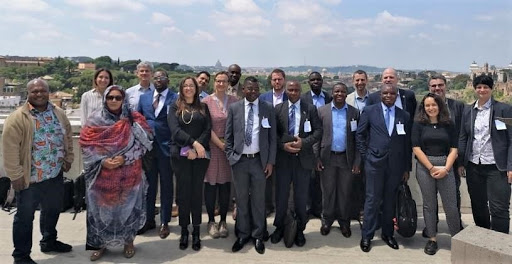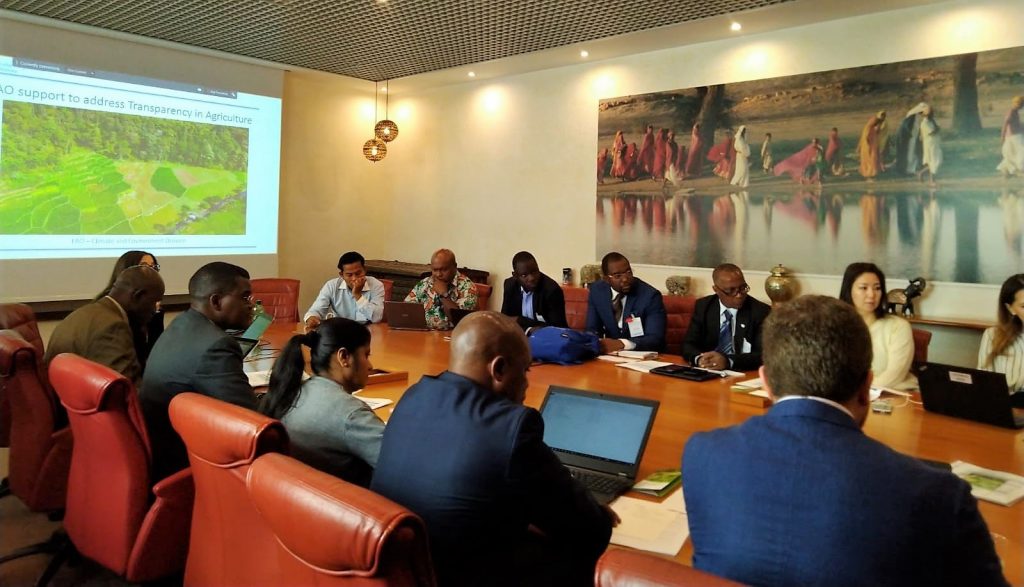FAO CBIT-AFOLU programme: enhancing capacity and boosting transparency in the Agriculture and Land Use sectors
Agriculture and land use sector play an essential role in climate change mitigation and adaptation, but there are technical, institutional and capacity barriers that make them more difficult to quantify, evaluate, monitor and report on, with respect to other sectors. As countries are preparing to raise their ambition in the new round of Nationally Determined Contributions (NDCs), it is of utmost importance that they can rely on tools and capacity development to capture their efforts in the AFOLU sector.

Under the Capacity Building Initiative for Transparency (CBIT) funded by the Global Environment Facility (GEF), FAO launched the CBIT-AFOLU programme to support countries in meeting the Enhanced Transparency Framework (ETF) requirements. The programme consists of both a global and 10 national CBIT-AFOLU projects. The national projects – namely Mongolia, Cambodia, Papua New Guinea, Afghanistan, Bangladesh, Sri Lanka, Benin, Equatorial Guinea, Cuba and Nicaragua – aim at addressing the capacity gaps and needs in terms of transparency. The global project focuses on producing ETF-enhanced global products, such as tools, guidance, training packages and e-learnings, to support the national CBIT-AFOLU projects and 13 pilot countries, along three main pillars: Institutional Arrangements, Measuring, Reporting and Verification (MRV) and Monitoring and Evaluation (M&E).
Pilot countries have a pivotal role in the project, as their inputs are crucial to validate and refine a series of products while stimulating country-level capacities strengthening through their use. The global project involves countries from different regions of the world, namely Guinea, Kenya, Malawi, Mozambique, Mali, Senegal, Sudan, Zambia and Zimbabwe in Africa, Myanmar and China in Asia and Colombia and Uruguay in Latin America. The identification of the pilot countries took place in two phases, the first one during the project preparation in 2017/2018 to assess the countries’ eligibility, and a second one during the inception phase in 2019, exploring countries’ interest to participate in transparency-related activities. The selection process took into consideration several aspects, from the GHG profile to the NDC pledges. To build commitment and trust, the pilot countries were asked to identify CBIT-AFOLU focal points, with a specific role and responsibilities.
In order to receive tailored support, pilot countries participated in a survey to identify the main gaps and needs to be addressed. For each component, the survey provided an understanding of which areas need the most support, which tools are the most used, and their initial feedback on their usage. Based on the results of the survey and on countries’ preferences, the implementing team facilitated individual exchanges, to familiarize with the country team and develop together country-specific work plans.
As the project activities unroll, countries will be asked to test and provide feedback on some ‘ETF-ready’ products, and at the same time they will receive specific training to enhance capacity on their usage. By addressing country views, the usability of the ETF-enhanced global products at larger scale will be ensured allowing the dissemination to a wider audience of countries and transparency practitioners.

The project will also facilitate the establishment of a network of AFOLU transparency practitioners, where they can share their experiences and best practices, and learn from each other through a virtual exchange, in collaboration with other partner agencies and organizations. Beyond the expected outcomes of the project, the implementation of these activities is already bringing beneficial results, mainly related to the development of new processes of mapping countries’ needs, aligning tools to country requests and identifying the best modalities to deliver an effective and sustainable capacity development. Such achievements are particularly important in light of the limitations arising from COVID-19 global outbreak, and they are already being put in practice in an effort to replicate and upscale the process in other projects and countries.
